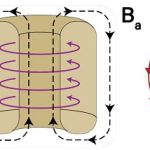Scientists create powerful magnets to de-freeze quantum computing
Quantum computers are like super-smart calculators that can solve really tough problems much faster than regular computers.
They could change the world by helping us...
A new study reveals that matter makes up 31% of the universe
In a groundbreaking study published in The Astrophysical Journal, an international team of scientists, including researchers at Chiba University, have successfully measured the total...
How much ‘stuff’ is in the universe? scientists say 31%
Matter—like stars, planets, and everything on Earth—makes up about 31% of everything that exists in the universe.
Scientists detect oxygen atom breaks apart in a way no one has seen before
Most of the stuff around us, like air, water, and rocks, are stable and don't change much. But some things are not stable and...
Scientists find creative way to make infrared light with quantum dots
Cheaper sensors and lasers are on the horizon due to the new innovations.
Scientists at the University of Chicago have found an exciting new way...
Scientists use big bang echoes to make more accurate universe maps
Scientists from several Chinese universities and the University of Cordoba have developed a new way to understand the universe better.
They published their study in...
Scientists use special radios to search for dark matter’s missing pieces
For a long time, scientists have known that dark matter exists in our universe.
They've seen its effects on other things in space, but they...
Alice rings: A quantum wonderland where magnetic particles change identity
Scientists have made a groundbreaking discovery that feels like something out of "Alice in Wonderland."
They have found something called an "Alice ring," which proves...
Scientists detect new component of radio halo in a galaxy cluster
Imagine a cluster of galaxies as a jigsaw puzzle, but not just any puzzle. It's one of those 1,000-piece challenges where every piece is...
Scientists create magic fermionic quantum processor
Quantum computers are cutting-edge machines that can solve problems much faster than regular computers.
Now, a team of scientists from Austria and the U.S. have...










